Will Julian Assange be forced to leave Ecuador’s London embassy?
WikiLeaks founder reported to have upset recently elected Ecuadorian President Lenin Moreno
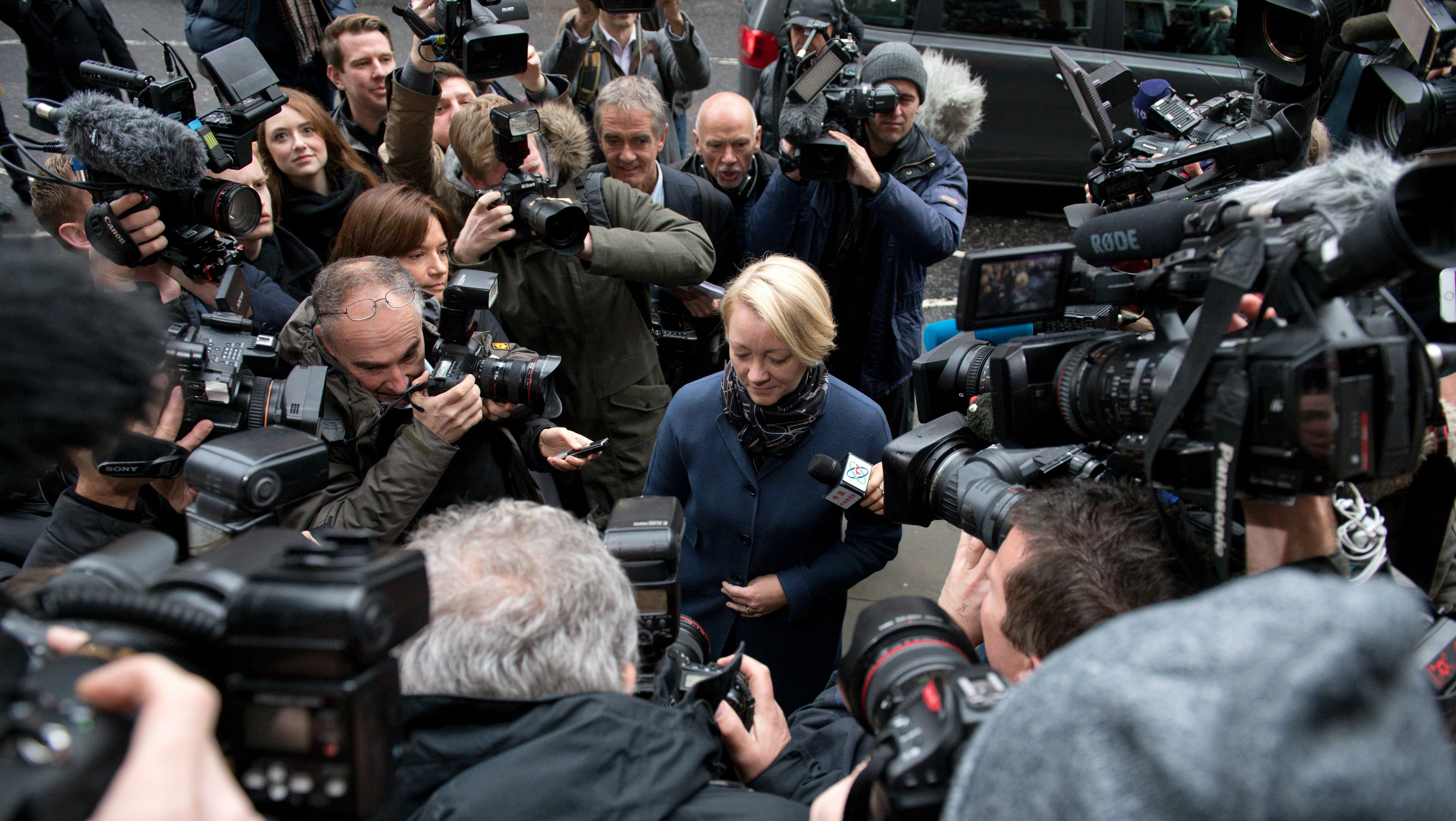
A free daily email with the biggest news stories of the day – and the best features from TheWeek.com
You are now subscribed
Your newsletter sign-up was successful
Julian Assange finally questioned over rape claims
14 November
Sweden's chief prosecutor Ingrid Isgren is questioning Wikileaks founder Julian Assange over an alleged rape six years ago.
Prosecutors issued an arrest warrant for Assange in June 2012, after two women filed charges relating to his visit to Sweden in 2010.
The Week
Escape your echo chamber. Get the facts behind the news, plus analysis from multiple perspectives.

Sign up for The Week's Free Newsletters
From our morning news briefing to a weekly Good News Newsletter, get the best of The Week delivered directly to your inbox.
From our morning news briefing to a weekly Good News Newsletter, get the best of The Week delivered directly to your inbox.
He sought asylum in the Ecuadorian embassy in London to avoid extradition and the case has been at a stalemate ever since.
Assange denies the claim, saying his sexual encounters with the women were consensual, and has accused the prosecutors of being politically motivated.
"He has refused to travel to Sweden for questioning, fearing he would be extradited to the United States over WikiLeaks' release of 500,000 secret military files on the wars in Afghanistan and Iraq," reports The Independent.
Today's interview was understood to have begun at 10am, after Isgren's arrived at the embassy to a crowd of photographers and reporters.
A free daily email with the biggest news stories of the day – and the best features from TheWeek.com
Ecuador's foreign minister Guillaume Long was pleased with the developments, saying: "This is something that Ecuador has been inviting the Swedish prosecutors to do ever since we granted asylum to Mr Assange in 2012."
However, he added he has asked both Sweden and the UK to guarantee Assange will not be extradited to a third country where he could be "persecuted for his work as a journalist".
Assange's supporters in the US have called on president-elect Donald Trump to drop the charges over the Wikileaks files.
During his campaign, Trump declared: "I love WikiLeaks", thanks to its repeated publication of Democratic party emails that proved highly damaging to his opponent, Hillary Clinton.
Why has Ecuador cut off Julian Assange's interest?
19 February
Ecuador's government has confirmed it has restricted Julian Assange's access to the internet in the wake of WikiLeaks's publication of a large number of documents from Hillary Clinton's presidential campaign.
"In recent weeks, WikiLeaks has published a large amount of documents that have impacted the US election campaign," said embassy officials.
They added that the Ecuadorian government "respects the principle of non-intervention in the affairs of other countries, it does not interfere in electoral processes... or support a candidate in particular" and so "Ecuador, in exercise of its sovereign right, has temporarily restricted access to part of its communications system in its embassy in the UK".
The country also reaffirmed the asylum granted to Assange and reiterated its intention "to safeguard his life and physical integrity until he reaches a safe place".
While it is not known how WikiLeaks obtained the files, the US government claims the cyber-breach was orchestrated by Russian hackers with the aim of undermining the country's democratic process.
Wikileaks had earlier suggested the US was involved in having Assange's internet access cut off, citing "multiple US sources".
Ecuador denied this, saying the country "does not cede to pressures from other countries".
Julian Assange: UN decision dismissed as 'ridiculous'
5 February
Foreign Secretary Philip Hammond has dismissed as "ridiculous" the finding by a United Nations legal panel that Julian Assange has been arbitrarily detained.
The WikiLeaks founder, who faces extradition to Sweden over a rape claim that he denies, claimed asylum in the Ecuadorean embassy in London in 2012, while on bail.
After first receiving a complaint from Assange in 2014, the UN's working group on arbitrary detention ruled today that he should be allowed to walk free and be compensated for his "deprivation of liberty", as he has not been able to leave the building without facing arrest.
The finding is not legally binding, but was described by Assange as a "really significant victory that has brought a smile to my face".
The Foreign Office, however, said the report "changes nothing" and vowed to contest the working group's "opinion".
Saying the decision was flawed in law, the Foreign Secretary labelled Assange a "fugitive from justice" and said he could leave the embassy "any time he chooses".
He added: "He is not being detained by us, but he will have to face justice in Sweden if he chooses to do so and it is right that he should not be able to escape justice. This is frankly a ridiculous finding by the working group and we reject it."
The call for compensation is "particularly controversial" when there has been public outcry over the cost of policing Assange's confinement at the embassy, says Caroline Hawley, the [1]BBC's diplomatic correspondent.
Nevertheless, Britain and Sweden are now in "an extremely awkward position" while Assange "has an important panel of UN legal experts on his side", she adds.
Julian Assange: UN panel 'rules in his favour'
04 February
A United Nations panel has ruled in favour of WikiLeaks founder Julian Assange, the BBC reports.
"If right this is a pretty extraordinary win for Assange," tweeted BBC Newsnight editor Ian Katz.
The UN's working group on arbitrary detention has been deliberating on whether Assange's confinement in the Ecuadorian embassy in London amounts to illegal detention and is due to deliver its verdict on Friday.
Assange, who is wanted in connection with a rape case in Sweden, had announced he would hand himself in if the panel ruled against him.
"Should the UN announce that I have lost my case, I shall exit the embassy at noon to accept arrest by British police as there is no meaningful prospect of further appeal," he said in a statement.
"However, should I prevail and the state parties be found to have acted unlawfully, I expect the immediate return of my passport and the termination of further attempt to arrest me," he added.
The UN's finding won't be legally binding, The Guardian notes. "However, the decision may prove an important tool for pressuring the British and Swedish governments to allow Assange to leave."
The Foreign Office has issued a statement saying: "We have been consistently clear that Mr Assange has never been arbitrarily detained by the UK but is, in fact, voluntarily avoiding lawful arrest by choosing to remain in the Ecuadorian embassy."
It added that an allegation of rape is still outstanding and a European arrest warrant in place, "so the UK continues to have a legal obligation to extradite Mr Assange to Sweden."
Assange has been living in the embassy for three years in order to avoid extradition to Sweden. The Ecuadorian government has granted him political asylum.
He stands accused of raping one woman and sexually assaulting another in 2010. Some of the claims have lapsed under the Swedish statute of limitations, but he is still wanted for questioning over the rape allegation.
Assange, who has not been charged, denies the claims and says he fears Sweden will extradite him to the US, where he could be charged with espionage over classified documents released by WikiLeaks.
-
 What to know before filing your own taxes for the first time
What to know before filing your own taxes for the first timethe explainer Tackle this financial milestone with confidence
-
 The biggest box office flops of the 21st century
The biggest box office flops of the 21st centuryin depth Unnecessary remakes and turgid, expensive CGI-fests highlight this list of these most notorious box-office losers
-
 What are the best investments for beginners?
What are the best investments for beginners?The Explainer Stocks and ETFs and bonds, oh my
-
 How corrupt is the UK?
How corrupt is the UK?The Explainer Decline in standards ‘risks becoming a defining feature of our political culture’ as Britain falls to lowest ever score on global index
-
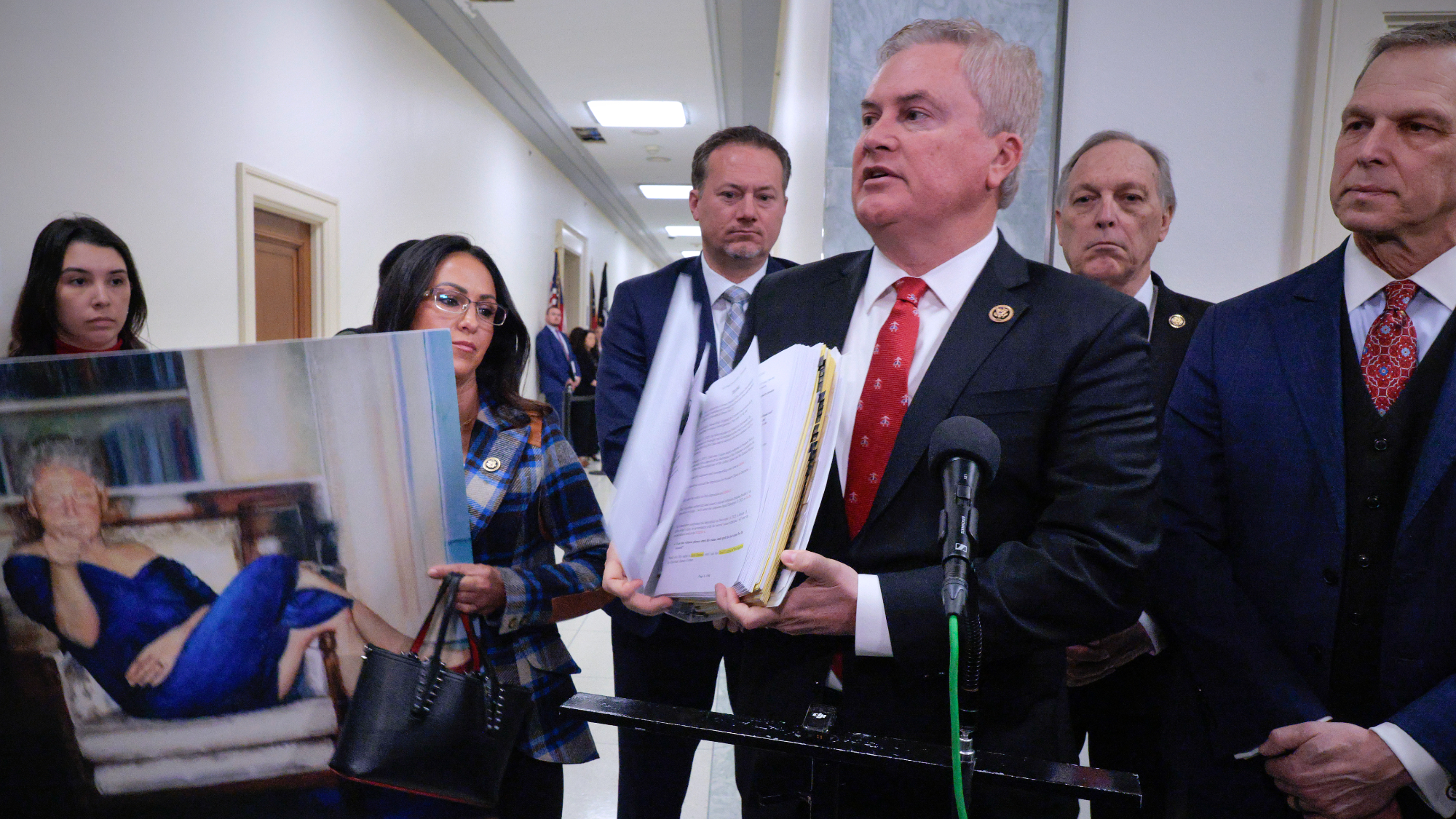 Clintons defy House GOP on Epstein subpoenas
Clintons defy House GOP on Epstein subpoenasSpeed Read The House has already received what ‘little information we have,’ the Clintons said
-
 The high street: Britain’s next political battleground?
The high street: Britain’s next political battleground?In the Spotlight Mass closure of shops and influx of organised crime are fuelling voter anger, and offer an opening for Reform UK
-
 Is a Reform-Tory pact becoming more likely?
Is a Reform-Tory pact becoming more likely?Today’s Big Question Nigel Farage’s party is ahead in the polls but still falls well short of a Commons majority, while Conservatives are still losing MPs to Reform
-
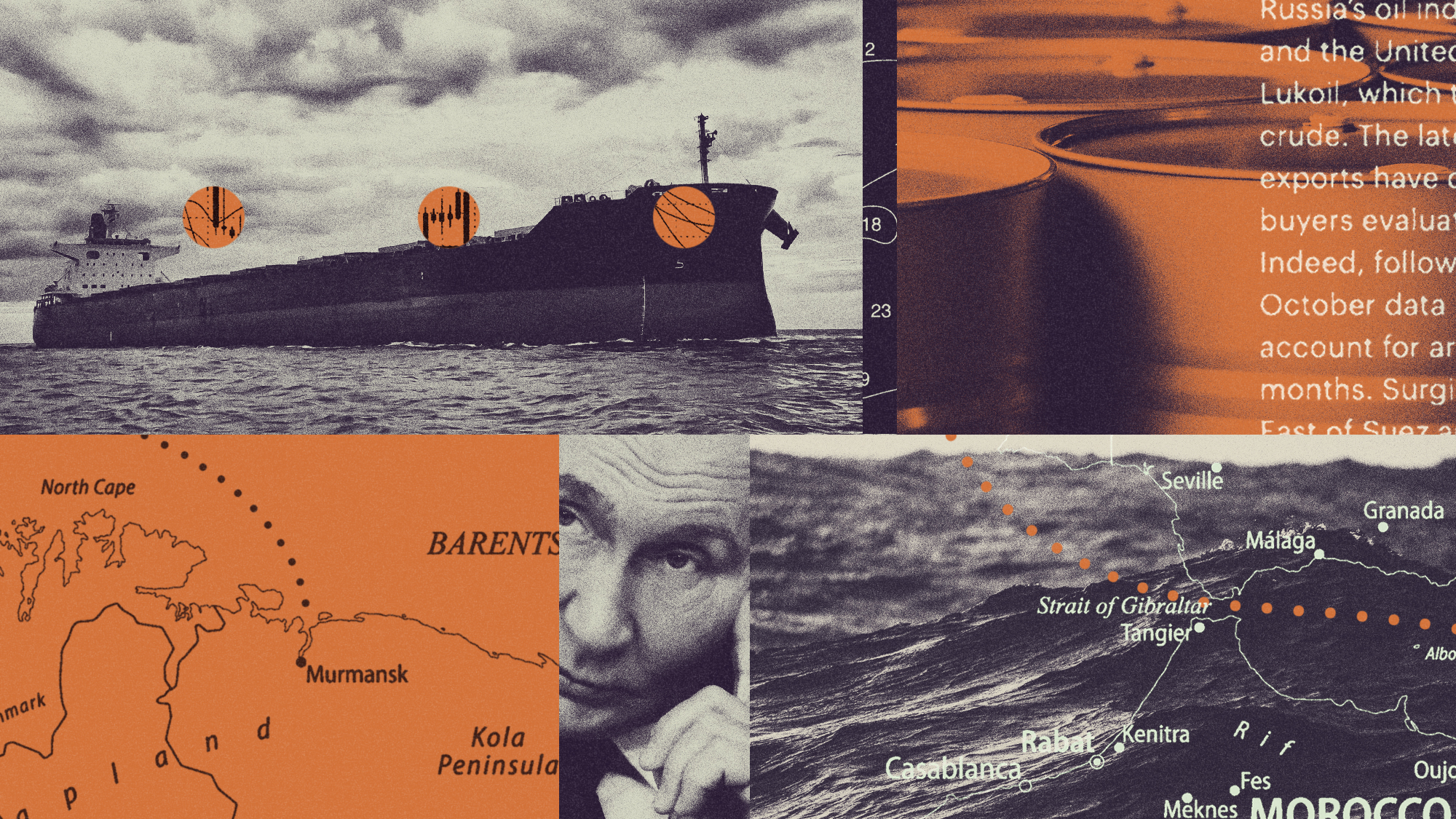 Defeating Russia’s shadow fleet
Defeating Russia’s shadow fleetThe Explainer A growing number of uninsured and falsely registered vessels are entering international waters, dodging EU sanctions on Moscow’s oil and gas
-
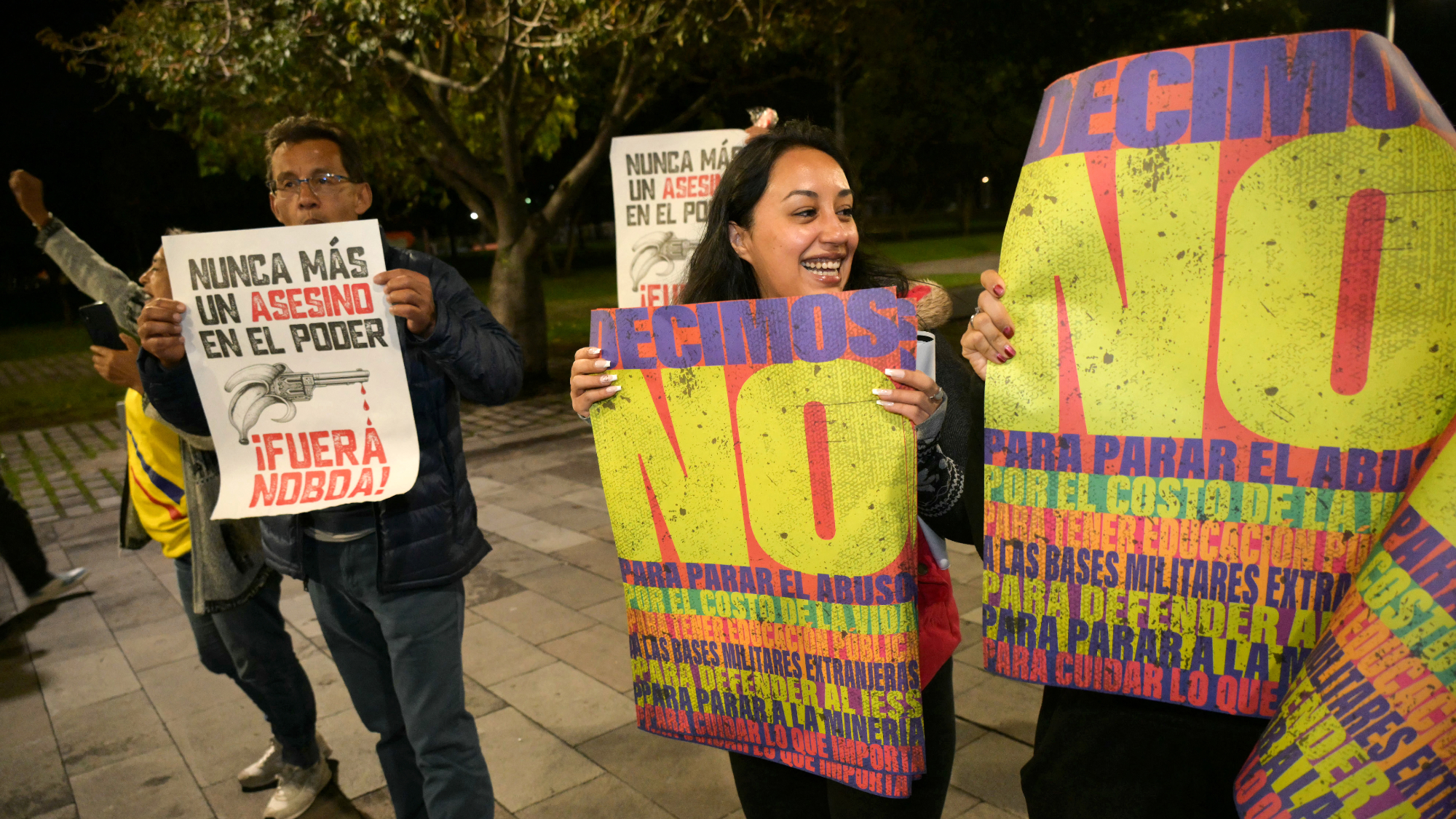 Ecuador rejects push to allow US military bases
Ecuador rejects push to allow US military basesSpeed Read Voters rejected a repeal of a constitutional ban on US and other foreign military bases in the country
-
 Taking the low road: why the SNP is still standing strong
Taking the low road: why the SNP is still standing strongTalking Point Party is on track for a fifth consecutive victory in May’s Holyrood election, despite controversies and plummeting support
-
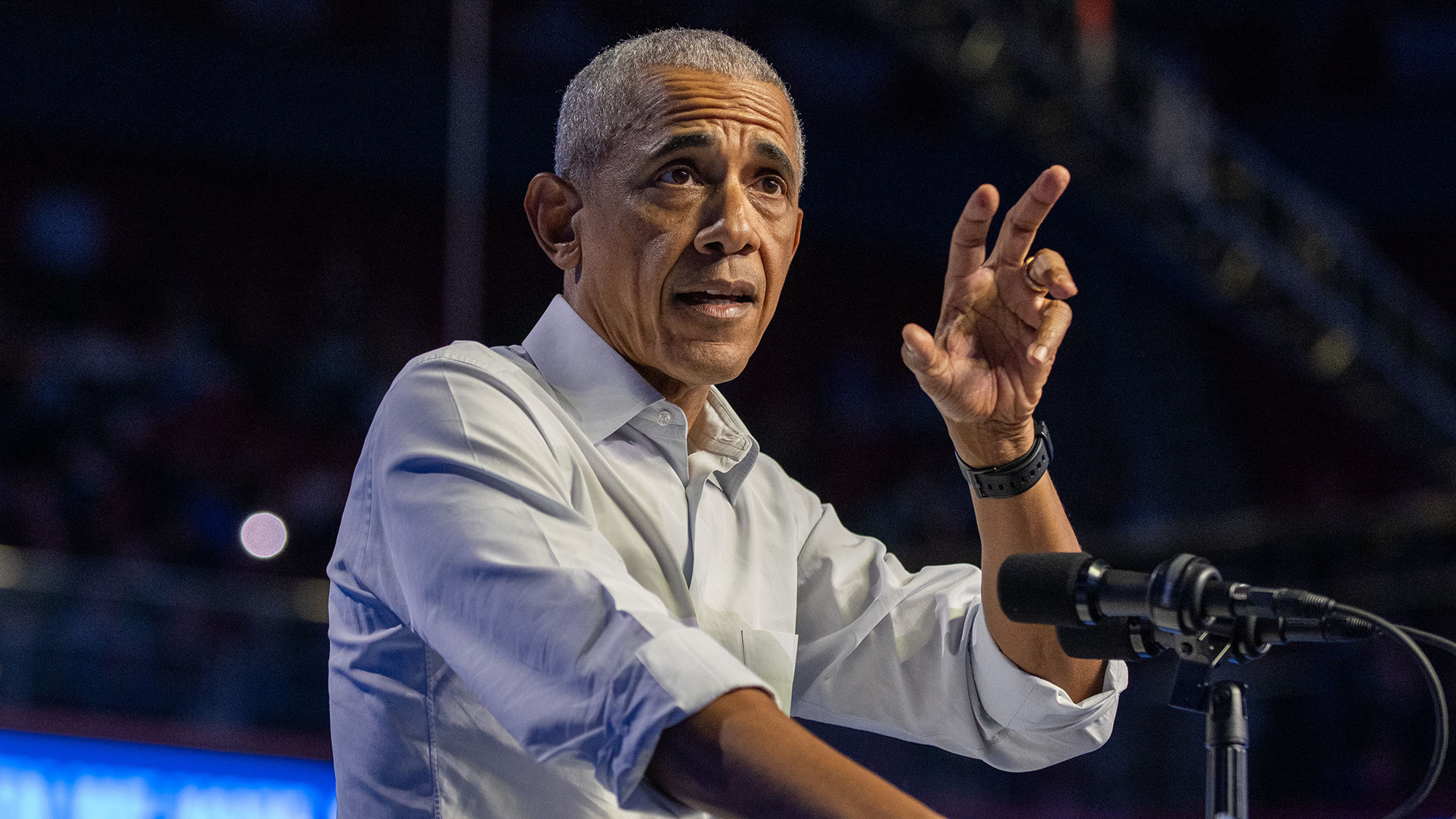 Trump attacks Obama as Epstein furor mounts
Trump attacks Obama as Epstein furor mountsSpeed Read The Trump administration accused the Obama administration of 'treasonous' behavior during the 2016 election